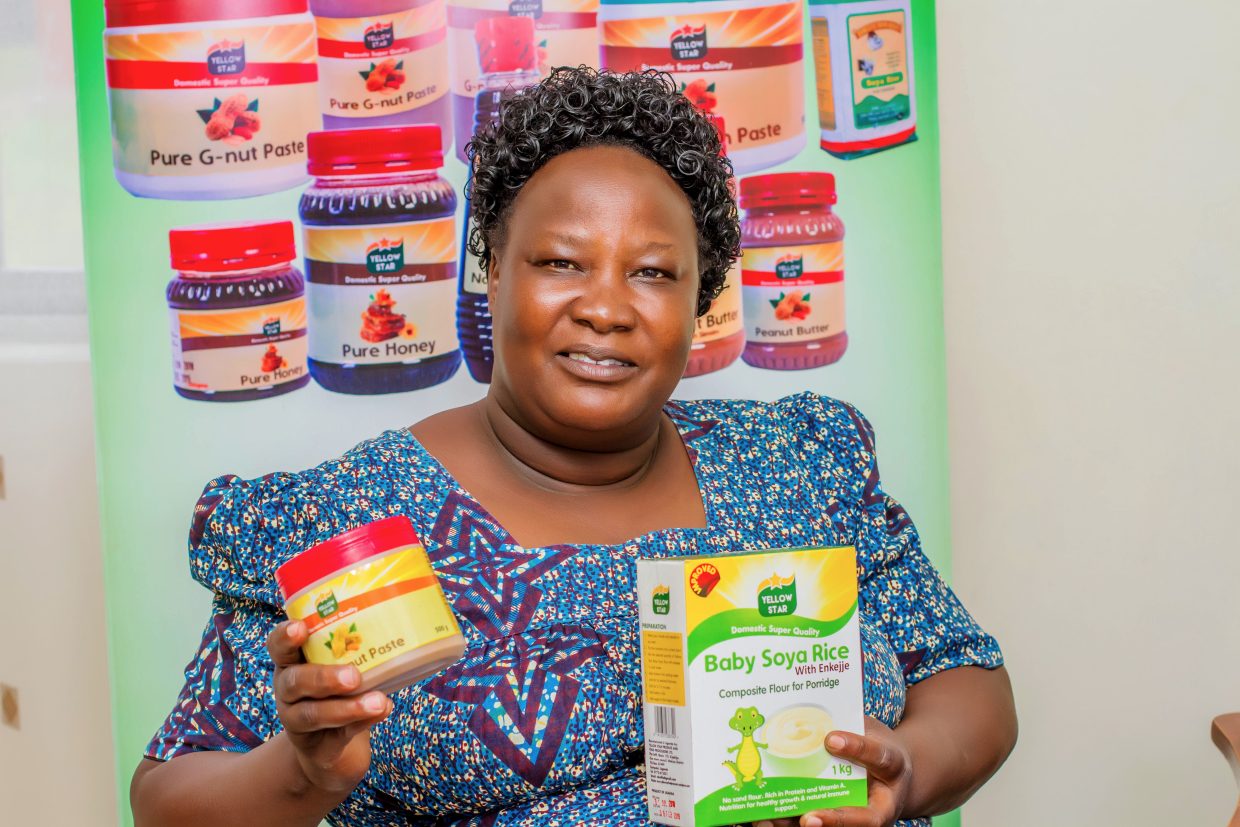“Twenty five years ago my child needed an operation, which was very expensive. We had to solve this family problem ánd wanted to do something about the malnutrition of all the children in our community,” Florence Okot from Uganda explains how it all started. ‘Yellow Star Food Processors’ grew from a family business at home in 1997 processing organic grains into flour with primitive methods from the village. A business which started with the sale of 70 kg of processed flour a year to now 500 tons in the present day. How is Florence’s company producing organic, nutritious food while helping women from the civil war ravaged North of Uganda, earn a living?
Florence was born and raised in Gulu, Northern Uganda, a region whose livelihood was built on subsistence farming, but also a region that was torn by civil war since the 1980’s. Florence comes from a family with three sisters and five brothers, with whom she started Yellow Star in 1997 informally. Trained as a social worker, Florence has had jobs at several NGO’s working for the benefit of children. In the first years of Yellow Star, Florence combined starting her business with her job as a social worker. The business became officially incorporated as a company limited by shares in 2014 and is now led by Florence and her son, who was the child that had surgery all those years ago. He has a degree in business administration. Her other son is helping out part time.
Supporting women refugees from the North
“Soya is a grain I know very well,” Florence tells with much knowledge. “We began with grinding from home, selling it to mothers who had problems feeding their children. Next to the soya products we started with millet and later peanut butter and honey. These products did very well in the village when we handed them out to neighbours and friends.” After this success, Florence’s family business started delivering to supermarkets. “There weren’t so many in Uganda then, but after we had moved to the capital city Kampala in 2000, we found more buyers and later we were able to build a small factory.” Florence proceeded taking in women refugees from the North who had escaped the war and came to the capital for a better life. “They were living under poor conditions in the city trying to cope and they didn’t know what to do. We asked them to sell our products door to door and they could take a percentage of the earnings.”
Training women on the land
In 2014, Florence was part of an international entrepreneurial development programme: “These six months were a turning point in my life and brought change to the company, which was then officially registered. I got the chance to travel abroad and won an award that enabled us to start a farm near Gulu. Since then, we have trained women farmers on land preparation, proper planting methods, identifying good quality seedlings from their garden, taking care of crops and disease prevention, climate change mitigation strategies and identifying good harvests to sell. We have trained over 5000 women up until this day. We buy their organic harvests and connect them to other buyers.” Back in Kampala, Florence now has 35 people working in the factory where the grains and other raw materials are being processed into nutritious organic products. “The products of Yellow Star are now being sold in most supermarkets and shops, but are also distributed to rural remote communities through two NGO’s to fight malnutrition.”
Productive self-employment
“We are focussing on productive self-employment of women,” Florence continues. “They can generate income, their children get to feed properly and go to school. We follow up on the women we’ve trained: we indulge them in other profitable business ventures such as poultry and piggery. I feel happy about my shared value experiences in the community, but I still have my personal business hurdles to cross: I seek grant funding to complete the factory to a modern facility and get all structures in place to achieve my ultimate goal of a healthy nutrition for all. I always feel proud when I see a woman succeed, because I know what change it means for their families. It is my dream to be the leading producer of nutritious organic food in the world,” Florence concludes firmly.
Interviewer and writer, Lisa Koolhoven
